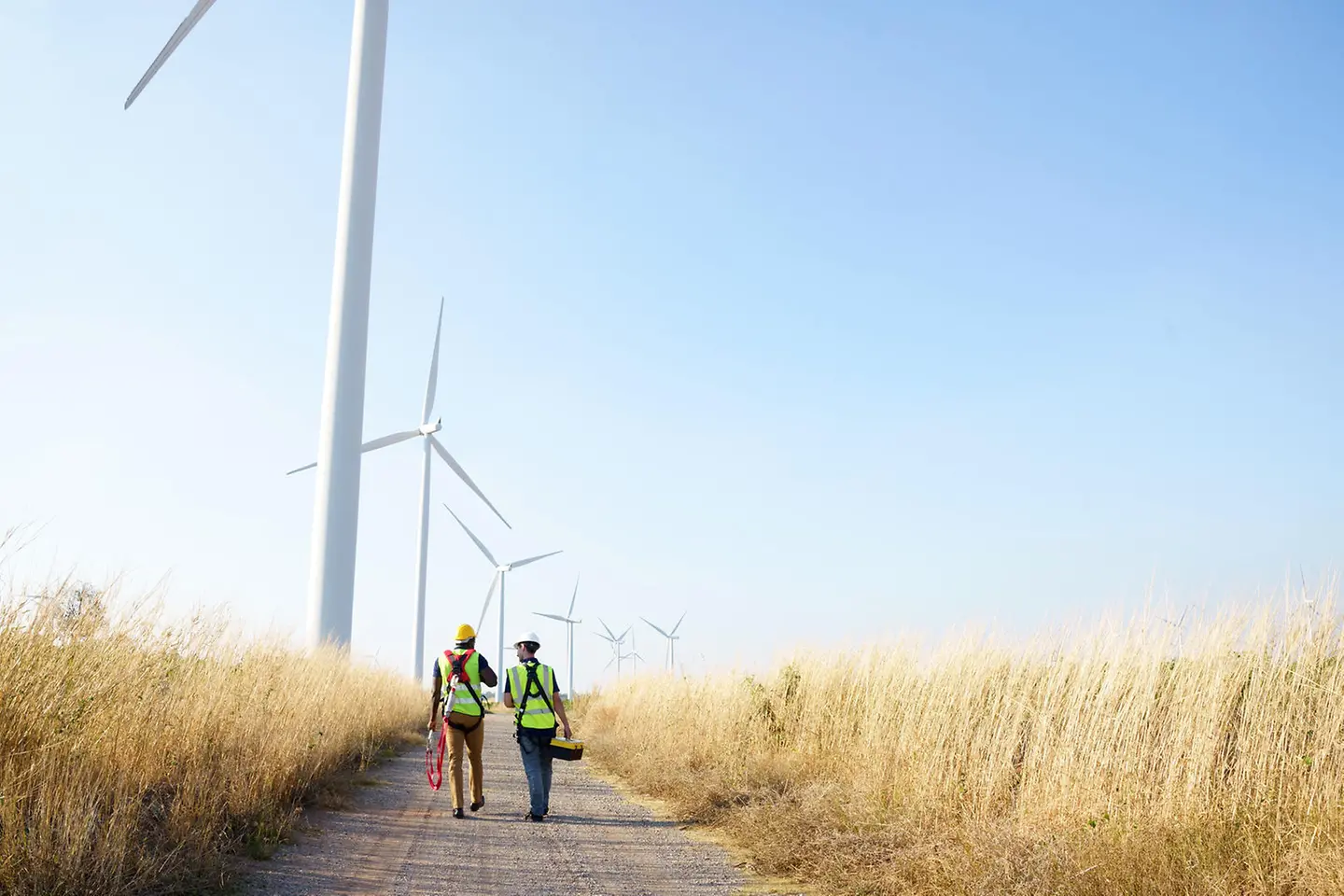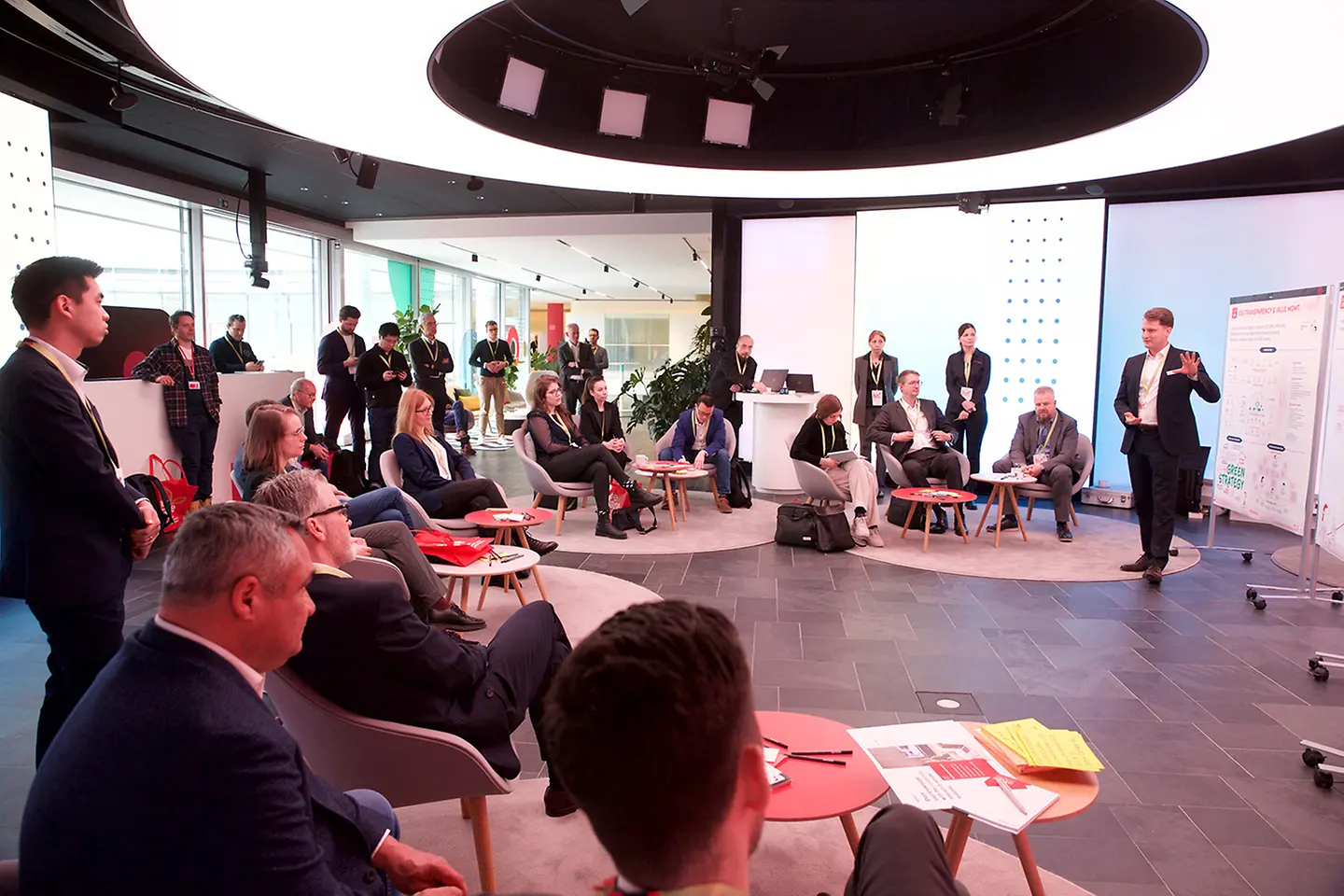
It has to be said: we can’t give you superpowers. However, companies that join our Co-Creation Advisory Board for Sustainability acquire green skills and solve environmental challenges much faster through collaboration, jointly exploit their sustainability potential, and increase the speed of their journey to digital transformation.

When was the last time you stumbled across art? I was recently surprised by George Bernard Shaw. The Irish playwright died in 1950, but he anticipated the co-creation idea of T-Systems: “If you have an apple and I have an apple, and we exchange these apples, then you and I will still each have one apple,” Shaw writes. “But if you have an idea and I have an idea, and we exchange these ideas, then each of us will have two ideas.” Smart thought. This is precisely what our LinkedIn X-Creation for Sustainability community enables. Organizations and companies from a wide range of sectors exchange ideas here and want to become more sustainable together. After all, we are late when it comes to climate and environmental protection. In other words, we, other companies, start-ups, and science, must define and share the best sustainability strategies. And be completely transparent in what we do.
We focus on cooperation with stakeholders from around 40 companies in different sectors. We are setting the signals to “green”. We want to use digital tools to make the CO2 equivalents (CO2e) or energy balance transparent and comparable across suppliers and consumers to end customers – in other words, to cover Scope 1, 2, and 3 emissions. What unites us? We need to manage climate change and stop its negative effects. No one can do this alone. But our strengths increase when we support each other. We want to develop analytical, fact-driven, global solutions and set standards collaboratively. Measurable sustainability targets and effective digital measures guide us. We want transparency for every process and every product. We want to expand our community gradually. Anyone interested in the topic of sustainability – and for regulatory reasons alone, every company must be – is welcome to join us.
A new law on due diligence in the supply chain has been in force in Germany since 1 January 2023. From 2024, companies will have to disclose at an EU level how their entire value chain’s activities impact environmental, social, and corporate governance (ESG) issues. In the future, only companies that integrate ESG criteria into their corporate strategy will be fit for the future. However, we can only make sustainable progress if we know the current situation and achieve a forward-looking sustainability strategy. But if you want to determine your ecological footprint, you need data. Companies have plenty of data, but it is often not the right kind. Or there is a lack of data transparency. Companies still face significant challenges here – in terms of infrastructure, complexity, and reporting. This is where service providers like T-Systems come in. We need to use new technologies and innovation to provide a clear view of the IT landscape.
At our first meetings, the participating companies expressed their infrastructure requirements clearly. Because they usually work with complex cloud landscapes, they expect their service providers to operate their clouds in “green” data centers. In fact, many providers have long been streamlining their data centers to support sustainability. As has T-Systems: with the “Net Zero Energy Data Center,” we want to create data centers that, under optimal conditions, no longer draw any energy from the public power grid and are powered solely by CO2-neutral energy. Customers must trust that their service providers act ecologically, have sustainability labels and certificates recognized by the market, or participate in sustainable development. But, above all, they need service providers who have their back when it comes to sustainability. Companies don’t want the distraction of worrying about what happens in the machine room.
Never doubt that a small group of thoughtful committed individuals can change the world. In fact, it's the only thing that ever has.
Margaret Mead
Not so long ago, I talked with Adel Al-Saleh, our CEO, about the CO2 emissions of various servers. He listened to me for a while and then asked: “Manfred, what exactly does that mean for our management? Which levers should we pull?” That’s exactly what we’ve been missing so far: a framework for sustainability KPIs that creates transparency for management. That’s because the key figures we use in the machine room don’t give the business much insight. Managers need transparency of greenhouse gas emissions and energy consumption, regardless of whether it concerns vehicle fleets, buildings, or the hardware and software used. There are still no standardized, mandated KPIs for sustainability reporting. But that will change. We want to work on the development of such standards together with our co-creation partners.
Which sustainability measures lead to the goal? Where do we need to make improvements? How can we record Scope 3 emissions? How can we conserve resources or promote recycling? Management needs answers to these questions. This requires service providers who can manage and process the available data transparently, for example, on a dashboard like Syrah Sustainability, which I described in my previous blog post. The web-based software displays sustainability indicators and collects data from business software. For example, from an ERP system, public databases for national statistics, or Eurostat.
Why do we rely on partnerships in all of this? Because scaling is better when we work together. We discuss topics crucial to every company: How do sustainability labels differ? What should we make of them? What is standardization, and why is it important for my company? Cooperation is also valuable for providers such as T-Systems. We receive insights from partners, customers, and stakeholders across the market.
Consequently, we know even more precisely how to develop our portfolio further so that our customers become sustainably resilient. Companies have shown they need a technology – and a product-agnostic partner – who can meet all market requirements without them having to worry. A partner who can plan and control entire IT landscapes, provide advice, and is always one step ahead and thinking long-term when it comes to sustainability.
Our partner forum is entering the next round: we meet every Friday for a virtual, collaborative exchange. Here, companies report on their challenges and sustainable strategies that have proven worthwhile. We are creating a global partnerships forum where we can co-create projects, standards, and innovations without companies having to worry about their own business. We want to move away from egoistic “I-thinking” and toward a green payback alliance of T-Systems, customers, partners, industry stakeholders, and science. We want representatives from all industries – from managers to machine room teams. In this way, we are building on the European Gaia-X concept and creating a framework for sustainable partnerships, sustainable development goals, and a sustainable ecosystem. If we want to promote a “green” future, we must act as “One Team.”
Would you like to be part of our sustainability partnerships community? Great, we look forward to seeing you at X-Creation for Sustainability.